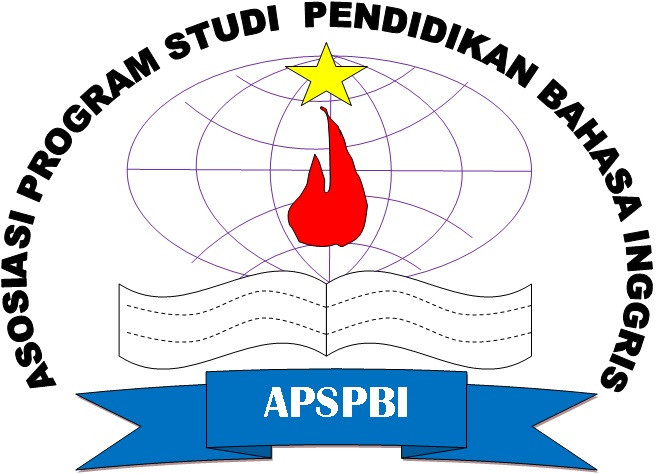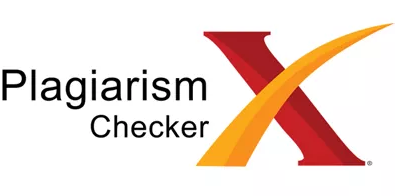Title:
Whatsapp: Learning on the go
Author:
Abstract
Mobile learning as one of digital teaching learningmedia has given beneficial impact to language learning. It said that mobile learning can facilitate students to learn everywhere in anytime. Learning using smartphone is one of the issues that can help the students to improve their English whenever they want and wherever they are. Whatsapp as one of the most accessed application, which can be installed in any smartphone is used in this research. The objective of the study is to find out what are the impact of using Whatsapp by exploring, describing and analyzing students opinion in learning English through Whatsapp. This research was conducted in the academic year 2017 / 2018 in the Second Year Class of the Department of Business Administration of Politeknik Sawunggalih Aji. There are 10 students in the classroom. The descriptive qualitative method is used in this research. The result of this research proved some activities done by the students via Whatsapp is showing language learning activities, such as vocabulary learning and combining words to sentence.
Keywords
Full Text:
PDFReferences
Abdul Fattah, S.F.E.S. (2015). The effectiveness of using Whatsapp messenger as one of mobile learning techniques to develop students’ writing skills. Journal of Education and Practice. 6(32), 115-127. Retrieved from: https://iiste.org/Journals/index.php/JEP/article/view/27324
Ashiyan, Z., & Salehi, H. (2016). Impact of Whatsapp on learning and retention of collocation knowledge among Iranian EFL learners. Advances in Language and Literary Studies. 7(5), 112-123. Retrieved from: http://journals.aiac.org.au/index.php/alls/article/view/2620
Awada, G. (2016). Effect of WhatsApp on critique writing proficiency and perceptions toward learning. Cogent Education, 3(1), 1-17. doi:10.1080/2331186x.2016.1264173
Bachore, M.M. (2015). Language learning through mobile technologies: an opportunity for language learners and teachers. Journal of Education and Practice, 2(31), 50-52, Retrieved from: https://iiste.org/Journals/index.php/JEP/article/view/27298
Castrillo, M.D., Marti-Monje, E., & Barcena, E. (2014). Mobile-Based Chatting for Meaning Negotiation on Foreign Language Learning. Paper presented at 10th International Conference Mobile Learning (pp49-58). Madrid, Spain: IADIS Press. Retrieved from: https://files.eric.ed.gov/fulltext/ED557212.pdf
Chinnery, G. M. (2006). Emerging Technologies Going to the MALL: Mobile Assisted Language Learning. Language Learning & Technology, 10(1), 9-16. Retrieved September 28, 2018, from https://eric.ed.gov/?id=EJ815708.
Hamad, M.M. (2017). Using Whatsapp to enhance students’ learning of English language “experience to share”. Higher Education Studies, 7(4), 74-87. Retrieved from: https://files.eric.ed.gov/fulltext/EJ1161157.pdf
Hazaea, A.N., & Alzubi, A.A. (2016). The effectiveness of using mobile on EFL learners’ reading practices in Najran University. English Language Teaching, 9(5), 8-21. Retrieved from: https://files.eric.ed.gov/fulltext/EJ1097574.pdf
Kee, C.L., & Samsudin, Z. (2014). Mobile devices: toys or learning tools for the 21st century teenagers? The Turkish Online Journal of Education Technology, 12(3), 107-119. Retrieved from: http://www.tojet.net/articles/v13i3/13312.pdf
Petrova, K., & Li, C. (2009). Focus and Setting in Mobile Learning Research: A Review of the Literature. Communications of the IBIMA, 10, 219-226. Retrieved January 20, 2018, from https://www.researchgate.net/publication/50434394_Focus_and_Setting_in_Mobile_Learning_Research_A_Review_of_the_Literature.
S., F. S., & Fatimah, A. S. (2016). The 2nd LITU-CULI International Conference (Vol. 2, Issue 1, pp. 64-77). Bangkok: LITU Press.
Vaca, A.A., &Cruz-Martinez, M.S. (2017). Mobile instant messaging: Whatsapp and its potential to develop oral skills. Media Education Research Journal, 50(XXV), 43-52. Retrieved from: https://eric.ed.gov/?id=EJ1040352
Zayed, N.M. (2016). Special designed activities for learning English language through the application of Whatsapp! English Language Teaching, 9(2). 199-204. Retrieved from: https://files.eric.ed.gov/fulltext/EJ1095562.pdf
Yang, J. (2013). Mobile Assisted Language Learning: Review of the Recent Applications of Emerging Mobile Technologies. English Language Teaching, 6(7), 19-25. doi:10.5539/elt.v6n7p19
Rahmayani, I. (2015). Indonesia Raksasa Teknologi Digital Asia. Retrieved February 24, 2018, from https://kominfo.go.id/content/detail/6095/indonesia-raksasa-teknologi-digital asia/0/sorotan_media
Millward, S. (2014). Indonesia diproyeksi lampaui 100 juta pengguna smartphone di 2018, keempat di dunia. Retrieved February 24, 2018, from https://id.techinasia.com/jumlah-pengguna-smartphone-di-indonesia-2018
DOI: https://doi.org/10.31002/metathesis.v2i2.629
Article Metrics
Abstract view : 472 timesPDF - 0 times
Cited By
Refbacks
- There are currently no refbacks.

This work is licensed under a Creative Commons Attribution-ShareAlike 4.0 International License.
Metathesis: Journal of English Language, Literature, and Teaching is published by English Education Department, Faculty of Teacher Training and Education, Universitas Tidar, Magelang, Indonesia in collaboration with Asosiasi Program Studi Pendidikan Bahasa Inggris Se-Indonesia (APSPBI)
ISSN: 2580-2712 (print) and 2580-2720 (online)
Jalan Kapten Suparman 39 Magelang, Jawa Tengah, Indonesia 56116
Phone (0293) 364113 Fax (0293) 362438
















 Abstract views : 472
|
Abstract views : 472
| PDF views : 0
PDF views : 0